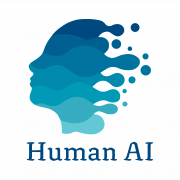Socioemotional Assessment with AI in Vocational Training
TutorIA in Vocational Training
The project “TutorIA for the Assessment and Development of SES” (socioemotional skills) was selected in the VII CaixaBank Dualiza and FPEmpresa Call for Proposals. TutorIA is one of the thirty innovative projects chosen for implementation. Furthermore, it highlights the importance of socioemotional assessment using AI to enhance personal development and improve the employability of vocational training (VT) students.
Integrating AI into Socioemotional Assessment
The primary goal of the TutorIA project is to evaluate and develop socioemotional skills (SES) in vocational training students to boost their employability.
One of TutorIA’s standout features is the application of the Human AI tool. This artificial intelligence technology enables precise and efficient assessment of students’ skills, facilitating continuous and personalized feedback. Human AI has become a key component in identifying areas for improvement and enhancing students’ abilities, contributing to their holistic development.
Methodology and Approach
The TutorIA project combines constant assessment with the development of SES. This approach focuses not only on academic performance but also on the personal and professional growth of students.
Human AI – Expert-Validated AI Tool:
- Understanding Text and Relationships: Thanks to algorithms trained in psycholinguistics and psychometric tests.
- Generating Personalized Reports: Based on the OCEAN model (Openness, Conscientiousness, Extraversion, Agreeableness, and Neuroticism).
- Holistic Evaluation: Ensuring that every student receives the attention and support needed to reach their full potential.
Project Development
- Initial Implementation
In February 2024, all students from the Aspasia VT centers participated in the project’s first phase, using Human AI to evaluate their socioemotional skills. Each student wrote a text of at least 800 characters, which the tool analyzed to generate a personalized report. This report provided a detailed evaluation of the five traits in the OCEAN model, highlighting strengths, areas for improvement, and offering recommendations and activities for personal and professional development.
- Application of Didactic Guides
During the final months of the academic year, didactic guides and classroom activities were developed and implemented to strengthen SES. These activities were designed to enhance the five factors of the OCEAN model and its 30 facets. Teachers and students provided feedback on the materials used, enabling improvements for future applications.
- Final Evaluation
At the end of the school year, students completed a second assessment using Human AI. Although the time between evaluations may have been too short to observe significant changes, in some cases, improvements in skill development were noted.
Impact and Future of the Project
The TutorIA project has not only benefited students from Aspasia VT centers but also created teaching materials accessible to other educators through the web. This project demonstrates innovation and promotes collaboration among institutions, social impact, coordination and communication, and long-term sustainability.
Focusing on improving socioemotional skills is essential for students’ employability and personal development, better preparing them for the workplace. The Human AI tool plays a critical role in this process, offering precise analyses while avoiding self-perception biases and social desirability effects.
Through the commitment of teachers and students at these centers and the application of Human AI, a sustainable and transferable model has been created that will continue to benefit future students and educators.







